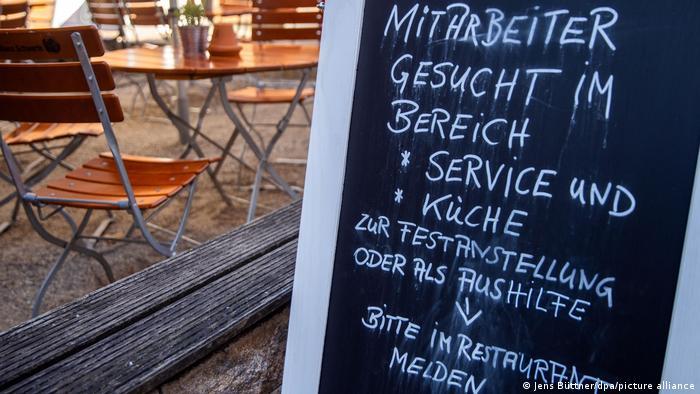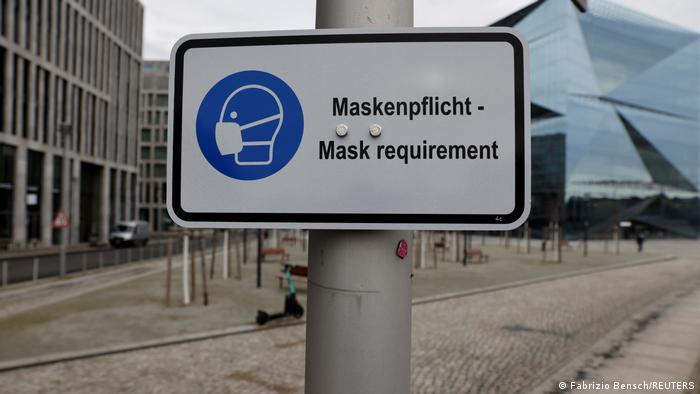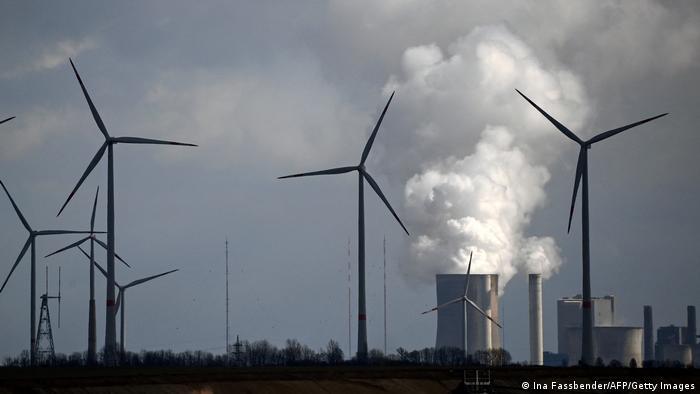Trainee Shortage Adds to German Workforce Woes

Young people willing to do vocational training are desperately sought in all sectors of the German economy
Back in 2014, US magazine The Atlantic published an article extolling Germany's apprenticeship system. Headlined "Why Germany Is So Much Better at Training Its Workers," the text pointed out that demand for trainee places outstripped supply in a system that was the envy of the world.
"No wonder the apprenticeships are popular," the article said. "At the John Deere plant in Mannheim, 3,100 young people apply each year for 60 slots, at Deutsche Bank in Frankfurt, it's 22,000 applicants for 425 places."
But eight years later, the outlook for Germany's long-vaunted vocational system is much less rosy. There is now an acute shortage of trainees in the country.
A recent survey of 15,000 companies by the Association of German Chambers of Industry and Commerce found that 42% of companies were unable to fill all their apprenticeship positions in 2021. The shortage of trainees is at an "all-time high," they said.
The German Economic Institute said 473,064 new apprenticeship contracts were signed in 2021, representing a 10% drop compared with 2013.
The implications for the German labor market, already struggling with a long-established shortage of skilled workers, are serious.

Worker shortages have become a feature of life in Germany
"The German economic model is based on skilled workers and in particular on the interaction between vocationally and academically skilled workers," Regina Flake, a senior economist with the German Economic Institute, told DW.
"A lack of skilled workers means in the worst case: company closures, a collapse of closely related supply chains and a decline of innovative capacity," she said.
"The supply of apprenticeship positions by firms continues to very significantly exceed the demand for these positions," said Ulf Rinne from Germany's Institute of Labor Economics. "This is a dangerous development because the dual apprenticeship system is a core strength of the German labor market and its graduates are the backbone of labor supply in many professions."
Labour pains
For several years now, Germany has had a shortage of skilled workers. A major cause is an increasingly rapid retirement from the workforce of the so-called baby-boomer generation of workers born in the 1950s and early 1960s. Around 350,000 workers are leaving the workforce each year, with not enough new workers to replace them.
The shortage of trainees is exacerbating this shortfall, but it also has its own causes, according to the experts.
Rinne said Germany's apprenticeship system has "lost its luster" in the eyes of young people, after decades of being seen as a fundamental pillar of the country's economic strategy and an attractive way to enter the job market.
"We are seeing a run on universities and vocational schools of all kinds, even from young people who would be better off in the classic system of apprenticeship training," he said.
Flake said the pivot away from apprenticeships has been evident for several years now. The COVID-19 pandemic has also played a part in exacerbating an existing problem. "One particular challenge during the pandemic situation was the lack of offers for vocational orientation," she said. "Companies were not able to make school visits, offer internship positions for students, organize project days etc. to present their training offers to young people."

The pandemic has contributed to the apprenticeship crisis in Germany
Rinne believes the pandemic and now the war in Ukraine have combined to dramatically intensify existing labor market problems. He described them as "transformative forces" which are accelerating the tumult caused by existing trends in the labor market, such as digitalization and decarbonization.
Role of politics is key to dealing with problem
The situation has become increasingly important at a political level. This week, Education Minister Bettina Stark-Watzinger said Germany "urgently needs more clever minds and hard-working hands fortransformation, growth and prosperity."
The coalition agreement struck by Germany's three ruling government parties includes a section aimed at making vocational training more attractive in Germany.
Rinne believes this is key to dealing with the problem. The government must create the framework and imperative for companies to improve conditions for trainees, he stressed. Companies also have to act fast. "Employers must be even more active in designing attractive workplaces and in training and educating their employees," he said.
Another fundamental change needed is to impress upon young workers how important it is to learn certain trades.
"We need more and better career guidance that conveys opportunities and a modern image of apprenticeships, for example in manual occupations that are essential to mastering the energy transition," said Rinne.
Undermining the green transition
Some sectors have been hit worse than others by the apprentice shortage. The construction industry is especially hard hit, along with other skilled trades such as plumbing, sanitation, heating, ventilation and air conditioning. Meanwhile, despite a sharp post-pandemic increase in tourism apprenticeships, such as in hotels and restaurants, hospitality sectors are also struggling to attract new trainees.

Skilled labor will be critical for the green transition in Germany
However, the overall shortage is likely to have consequences for the German economy as a whole.
Rinne said the developing labor crisis has the potential to be a major lag on German economic growth for years. He pointed to the array of supply bottlenecks and staff shortages already evident across the country in various sectors. "The shortage of skilled workers, which already hampered growth in Germany ahead of the crises, has now grown into a broader labor shortage and has also reached the low-wage sector," he said.
"Efforts by all social actors are required to alleviate these growth constraints and secure the human capital needed to successfully cope with the acute transformative processes and structural change," he added.
Looming over the entire situation is the green transition. As Germany seeks to reach daunting climate targets in the years ahead, a shortage of workers is another major hurdle on the way to achieving that goal.
Flake noted that skilled workers are needed to promote the greening of the economy and fight climate change. "For example, the installation and commissioning of photovoltaic systems or wind turbines are not possible without skilled workers," she said.
Edited by: Uwe Hessler
Get the latest reports & analysis with people's perspective on Protests, movements & deep analytical videos, discussions of the current affairs in your Telegram app. Subscribe to NewsClick's Telegram channel & get Real-Time updates on stories, as they get published on our website.
























